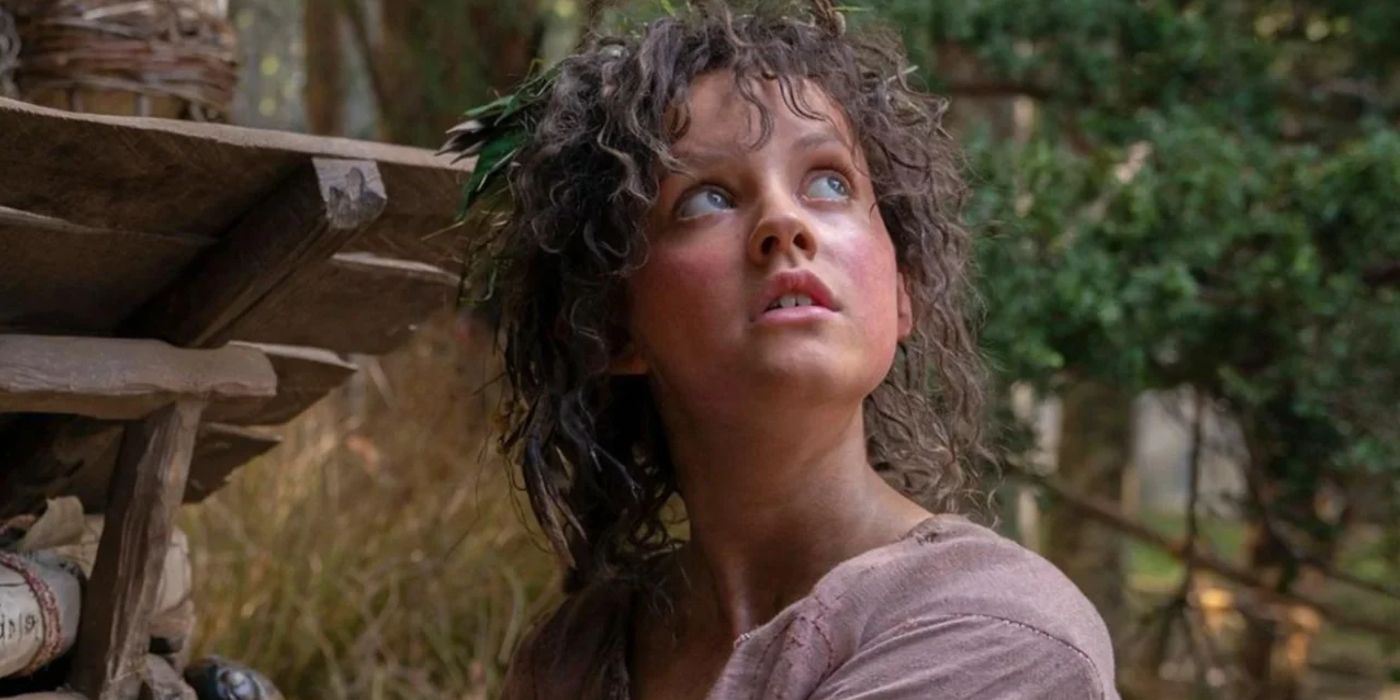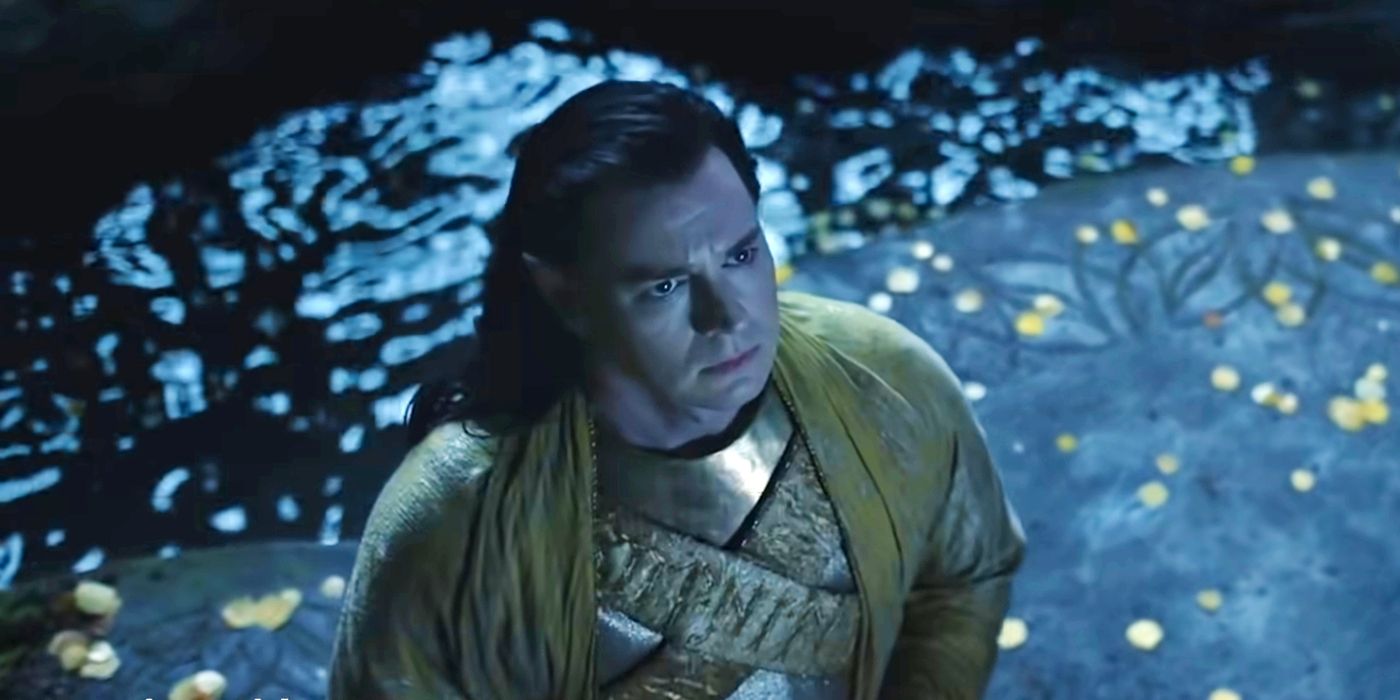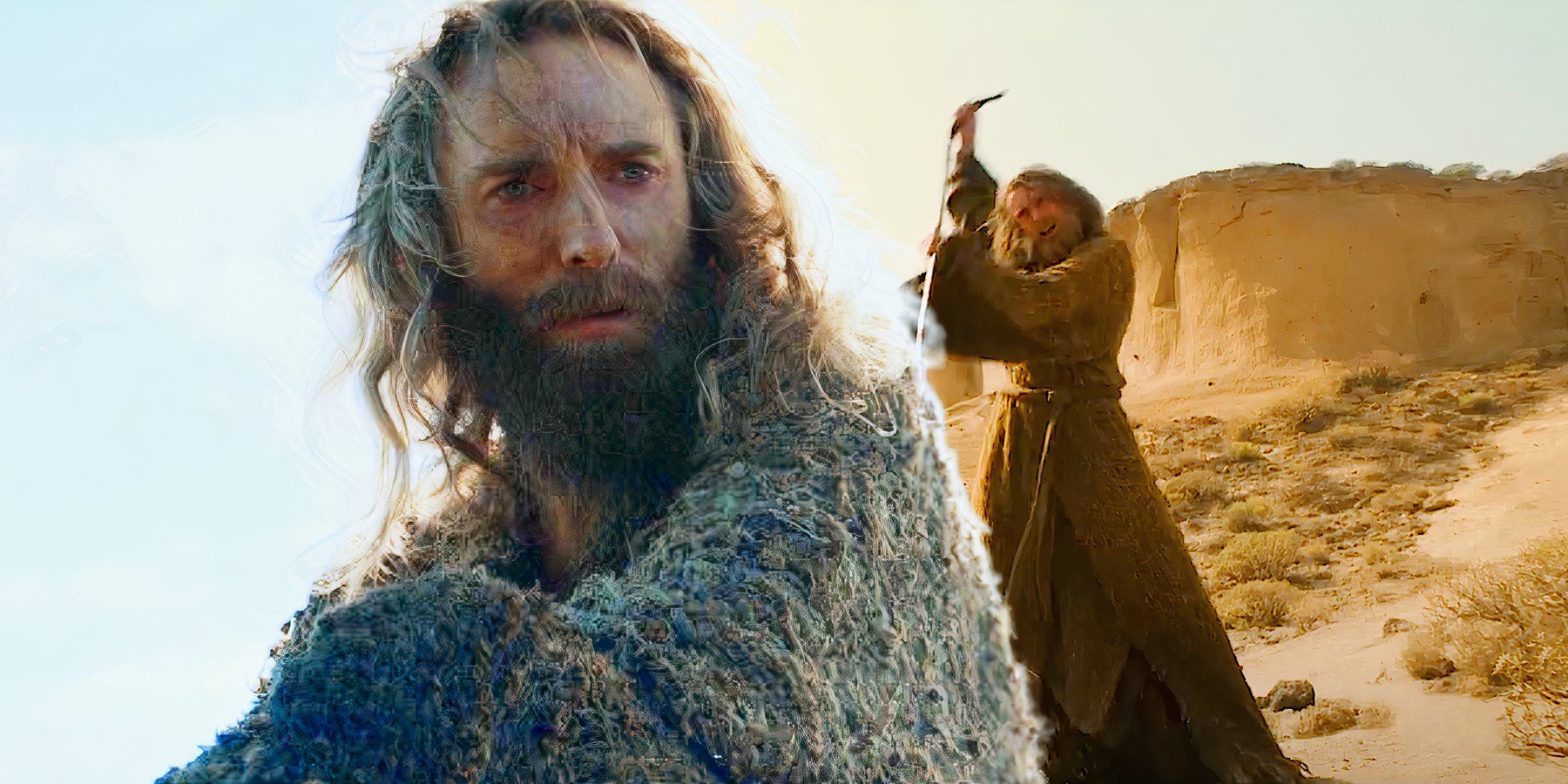Summary
- Middle-earth in Rings of Power differs from Jackson’s films & spans four ages with complex mythology.
- Second Age introduces Númenor, pivotal in shaping Third Age kingdoms like Gondor and Arnor.
- New locations reveal proto-Hobbits in Rhovanion and Elven kingdoms like Lindon and Eregion.
The Middle-earth of The Lord of the Rings: The Rings of Power is very different from the one seen in Peter Jackson’s Lord of the Rings films. J.R.R. Tolkien was one of the most expansive and creative writers of all time, and the world he fashioned is remarkably vast, with an incredibly complex mythology. The timeline of Eä (the universe in which Middle-earth exists) is divided into four ages, which span literal millennia. The Rings of Power is set in the Second Age, long before the Third Age days of Frodo, Aragorn, and the rest of the Fellowship of the Ring.
Just as in the real world, a great deal changes in Middle-earth over thousands of years. There are kingdoms and people of the Second Age who no longer exist by the Third. Other places and races, on the other hand, have greatly changed over the centuries to the point that they are unrecognizable by the events of The Lord of the Rings. While the Third Age has been heavily explored on screen, Rings of Power is the first we’ve seen the Second Age adapted in any detail—picking out the differences is all part of the fun.
The Rings Of Power Features The Island Of Númenor
Númenor Will Be Long Gone By The Lord Of The Rings
The first key difference lies in the importance of an island nation called Númenor. One of the greatest civilizations in the history of Middle-earth, the kingdom of Númenor was a majestic city settled by the Edain – Middle-earth’s first recorded men, who allied with the Valar against Morgoth. As a reward for their loyalty, the Valar raised an island out of the waters for them to live on, and it was ruled by Tar-Minyatur – Elrond’s brother, who forsook his elven half.
The Fall of Númenor will mark the end of the Second Age, with the great city drowned by a great wave and its inhabitants killed – including Sauron’s physical body. There will be faithful survivors, however, who establish new kingdoms in Middle-earth. The Númenoreans will mix with the humans living on Middle-earth, with their descendants becoming known as the Dúnedain, possessing many of their attributes. The Númenoreans will be responsible for establishing many of the familiar kingdoms of the Third Age, including Gondor in the south and Arnor in the north.
In The Rings of Power
season 1, Elendil and Isildur travel to Middle-earth from Numenor, where they are destined to establish the Kingdom that Aragorn will later rule.
The Southlands Were Yet To Become Mordor
Mordor’s Past Is Forgotten By Lord Of The Rings
The Rings of Power introduces viewers to new Tolkien locations such as the Southlands, confirmed to be the given name for Mordor. According to the Elves, the Southlands were once barren but have now become fertile grasslands; it’s likely this alludes to historic volcanism. Mount Doom erupted at the end of Rings of Power season 1, so the Southlands are no more. Now Mordor, this is a prime example of how Rings of Power is slowly shaping Middle-earth into the place of The Lord of the Rings.
Now Mordor, this is a prime example of how Rings of Power is slowly shaping Middle-earth into the place of The Lord of the Rings.
Hobbits Will Live At The Shire In Lord Of The Rings
Meanwhile, a group of proto-Hobbits known as Harfoots flourishes in Rhovanion. According to Tolkien, the Harfoots were one of three branches of early Hobbits. The Harfoots excel at hiding themselves away from the other races of Middle-earth and live a migratory life. They are dwelling quite close to the region that will become known as the Mirkwood after Sauron chooses to settle there, leading to its becoming inhabited by various dark creatures. Tolkien’s notes suggest the proto-Hobbits will flee Mirkwood and the shadow of Sauron’s citadel, Dol Guldur, and in the Third Age, they will finally settle in the Shire.
The Rings of Power
season 2 introduces another group of proto-Hobbits, this time called the Stoors. It seems only a matter of time before the Fallohides are also introduced.
The Elven Kingdoms Of Middle-Earth
Many Elf Kingdoms Will Be Gone Or Diminished By Lord Of The Rings
The Elves of The Rings of Power are ruled by High King Gil-Galad, whose throne is found at Lindon. It is portrayed as a place of great beauty, situated near the Grey Havens, where ships can be sent out to Valinor. Gil-Galad established Lindon during the First Age, and it is primarily inhabited by a branch of Elves called the Ñoldor, although by the Second Age, it has become much more diverse. Lindon will still exist by the Third Age, although much diminished; the ships seen leaving Middle-earth for Valinor in The Return of the King leave from there.
Heading east, The Rings of Power introduces viewers to the Elven stronghold of Eregion. Tolkien wrote several different accounts of Eregion’s origin in his unpublished notes, and it’s already clear The Rings of Power is taking a new approach that blends elements of them all. Eregion is destined for tragedy, with Celebrimbor forging the Rings of Power at his forge there. Eregion will not exist in the Third Age, for it is fated to be destroyed by a wrathful Sauron—an event teased for The Rings of Power season 2.
Eregion will not exist in the Third Age, for it is fated to be destroyed by a wrathful Sauron—an event teased for The Rings of Power season 2.
The Dwarves Flourish At Khazad-dûm
Moria Is Long Abandoned By The Lord Of The Rings
The Second Age is noted for the Dwarven kingdom of Khazad-dûm, the most famous of all Dwarven kingdoms and situated near Eregion beneath the Misty Mountains. It was founded in the First Age but grew in importance during the Second Age, pursuing good relations with the nearby Elves. As with so many locations in The Rings of Power, this beautiful city has a tragic destiny. Into the Third Age, miners will dig too deeply and unearth a fearsome Balrog.
The Rings of Power season 1 foreshadowed the fall of Khazad-dûm (a little earlier than scheduled), with teasers for season 2 hinting that King Durin V will dig too deep because of the influence of one of Sauron’s Rings of Power. This differs slightly from Tolkien’s version of the tale but serves as a logical explanation for the poor decisions of the Dwarves that led to their greatest kingdom’s downfall.
Rhûn Is A Mysterious Land To The East Of Middle-earth
Rhûn Is Often Just Called The East In Lord Of The Rings
The Stranger and Nori head to Rhûn in The Rings of Power season 2, an area that has hardly been explored in an on-screen adaptation of Tolkien’s works. It was often called the “East” in The Lord of the Rings, and its people were called the Easterlings (the Men who joined the Battle of Pelennor Fields on the Oliphaunts). The East was regarded as a place of great evil and chaos in The Lord of the Rings, and while this may be true to a point in The Rings of Power season 2, perhaps not entirely.
The Elves of Middle-earth technically originated near Rhûn, in Cuiviénen. They woke up there after their creation, but when some were captured and tortured by the Dark Lord Morgoth, the Valar invited the Elves to travel West to Valinor to live in peace and safety. Those taken and corrupted by Morgoth became the first Orcs (like Rings of Power‘s Adar), making Rhûn these creatures’ birthplace as well. Additionally, Rhûn is where Sauron hid after Morgoth’s downfall, so there’s plenty of indication that this region will be more critical in Rings of Power than it had been in Lord of the Rings.
The Stranger and Nori are teased to run into Tom Bombadil in Rhûn, indicating that the East hasn’t fallen entirely to darkness at this point in the Second Age.
Sauron’s Return Changes Middle-earth In The Rings Of Power Season 2
Middle-earth Will Slowly Look More Familiar
The start of Rings of Power season 1 sees a version of Middle-earth that is far more prosperous than it had been at the start of Lord of the Rings. The Prime Video series picks up at a time when kingdoms like Lindon and Numenor believed that the Dark Days were behind them and their numbers and wealth had greatly grown. However, now that Sauron has begun to create his Rings of Power and build his influence, things are about to change in Rings of Power season 2.
Now that Sauron has begun to create his Rings of Power and build his influence, things are about to change in Rings of Power season 2.
In The Lord of the Rings, Sauron had been gone for centuries, but his One Ring and evil soul still remained. Mordor was in shambles, lost without a king. The Elves were dwindling, and the Dwarves were fighting an ongoing battle to free their caves from Orcs and other evil beings. Rings of Power will begin to see the origin of this decline in season 2. Middle-earth will buckle and bend under Sauron’s subtle, deceitful rule. It won’t be until his final downfall at the end of The Lord of the Rings that the prosperous Middle-earth will return.


